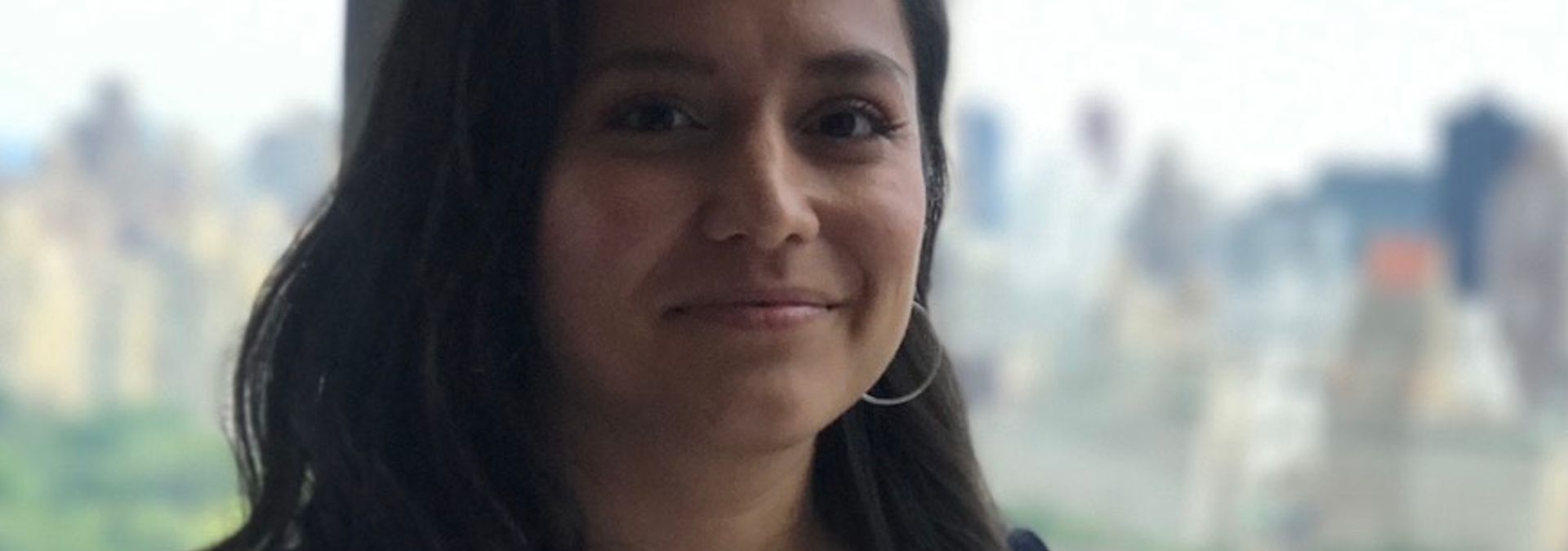
'We are fighting for protection': A conversation with Erandi Trevino of Moms Clean Air Force
Erandi Trevino is the Texas state organizer and field consultant with Moms Clean Air Force. Courtesy photo.
When Erandi Trevino was in fifth grade, she learned something that's stayed with her ever since.
“I remember being horrified,” she says, to be told that children like her who live within two miles of the Houston Ship Channel are 56 percent more likely to develop a kind of leukemia than children 10 miles away.
Her school, located in Magnolia Park, was less than half a mile away. Her favorite park, Mason Park, was a mile. She didn’t understand why more wasn’t being done. Later, for a class project, she’d “invent” a device to capture and filter away the pollution.
Born in Mexico, Trevino immigrated with her sister and mother to Houston when she was 7. Her life in Houston allowed her to witness the gulf between those who live with environmental injustice and those who do not. (A classmate told her when she transferred to a new middle school: “Everyone has a pool in their backyard.”) It's allowed her to appreciate just how entangled are air pollution, climate change and health. “I know now that the solutions aren’t as straightforward as I’d imagined then,” she says, “but I still believe the lack of action is unacceptable.”
Trevino, a third-year law student, is taking action as the new Texas state organizer and field consultant with Moms Clean Air Force. Founded in 2011, MCAF is a community of more than 1.2 million parents across 24 states united against air pollution and committed to delivering solutions to protect all children’s health. Texas, which emits more climate-altering carbon dioxide and produces more oil and gas than any other state, has the largest MCAF chapter, with more than 64,000 members.
I talked with Trevino about how Houston shaped her and how the state's attitudes about industry and climate change pose a challenge to all of us caring for children.
Our conversation has been edited and condensed for clarity.
TL: Forgive me if this is too personal, but are you a mom? How do you talk with children about these issues and why you are so motivated to focus on clean air and environmental justice?
ET: My mother raised my sisters and me to be environmentally conscious. She is big on conservation and respecting the planet. We conserved water and electricity. We recycled. I believe my mother's actions and lessons about the importance of doing our part shaped my values.
Though I am not yet a mom, I am a very engaged aunt with my two nieces, 2 and 6. I try to lead by example. I own a plant nursery, and they see me tend to my plants every day. Some weekends, they help me water the plants and plant bulbs. My older niece understands the importance of caring for the plants to keep them healthy and happy.
Though she is growing up without the visible, unavoidable pollution I experienced as a child, she's had a tough life full of trauma, including post-traumatic stress disorder from Hurricane Harvey. She was only about 3 when she watched water seeping into the house. She is still terrified of storms. I believe in a future with an environment that doesn’t constantly threaten us. I believe in a future where everyone receives equal and adequate protection from the harms of air pollution.
So do 1.2 million other people like me.
TL: Why is important for MCAF to be working in Houston?
ET: In Houston, there’s a chemical incident about every six weeks. The ITC fire was two years ago, but not enough has changed. Without stronger protections that prioritize the health of people over the profits of an industry, our children and communities remain at risk. We are fighting for those protections.
We know there is a strong link between air pollution and climate change, too. Impacts once thought of as a distant future threat are already occurring. In Texas, this has been demonstrated over and over in the last few years, with Hurricane Harvey and the winter storm that has led to nearly 200 deaths.
As decision-makers scramble to keep trains and buses running among feet of snow, make plans to save infrastructure from flooding and revise planning to contend with drought, it’s time they pause to acknowledge the role that human-induced climate change is playing in our changing weather — and commit to ambitious policy changes that reverse these trends. In 2016, Texas emitted 653.8 million metric tons of carbon dioxide — nearly double the second-highest emitting state.
We are dealing with the impacts while the decision-makers are failing to take action. Scientists agree that Hurricane Harvey and storms like Laura that have devastated the Gulf Coast recently were made worse by climate change. Houston was still rebuilding from Harvey and now must recover from a new disaster. We have to take drastic climate action.
TL: How is MCAF making a difference?
ET: We worked with the City of Houston’s Office of Sustainability and regional partners on the Climate Action Plan. We were there to make sure the plan included robust measures to reduce air and climate pollution and also address the social and environmental justice issues unique to Houston.
With no zoning, oil and gas development and other sources of industrial pollution setup too close to Black and Latino communities. We’ve been elevating the voices of members of these communities, particularly in the Fifth Ward, where there are many issues with pollution, including the fallout from the creosote contamination at the railyard.
We're driven by an active group of volunteers, also known as “super moms.” In April 2020, Trump’s EPA proposed retaining the current standards for particle pollution, ignoring science and putting thousands of lives at risk. Even in the midst of the pandemic, the moms showed up. Our Texas chapter, including 15 super moms, joined more than 65 staff members and volunteers from 18 states and Washington, D.C. to give testimony at the EPA’s virtual hearing and make our voices heard.
TL: Now that you've been away from Houston for a few years, what do you see now that you didn't see before? What are the challenges?
ET: Growing up, I thought a lot about the environment and always wanted to help others. But it wasn't until college that I realized that working to further environmental sustainability was the way I could make the most impact. That focus grew to include economic sustainability. The two are deeply connected.
For too long, governments and corporations have prioritized economic gains despite the environmental consequences. But the consequences have direct economic repercussions in degradations to our natural resources and damages to people’s health, and we know those consequences aren’t experienced equally.
Coming back to Houston after a decade living in different cities, I see, despite the city's culture and diversity, those inequities.
At my middle school and high school, the other students were from families living below the poverty line, the middle class and affluence, with parents who were scientists, doctors and engineers in oil and gas. I remember thinking I was privileged to be exposed to people of different backgrounds. I still believe that. But there are an overwhelming number of people in neighborhoods who do not have the same experience.
Many neighborhoods in the city are still segregated. Many low-income neighborhoods are either largely Hispanic or Black. This makes a difference in how resources are allocated to schools and how knowledge is shared between students.
Many of these neighborhoods are also exposed to more pollution than others. For example, Port Houston is spending nearly $1 billion on an infrastructure project that could boost the regional economy, but ignores the health of the communities who will have to endure the pollution from the construction. The port’s Clean Air Strategy Plan claims to be committed to clean energy goals and emissions reductions, but for whom?
One of the biggest challenges will be convincing law- and policymakers to take action for environmental justice or against industries that have always been given a free pass. Our communities do not have to choose between good jobs or good health. They can have both. That’s why MCAF is doing what we’re doing.
Ludwin is a writer and editor in Houston.
STAY UP TO DATE
The quality of our newsletter is considered satisfactory and poses little or no risk.
SUBSCRIBE

